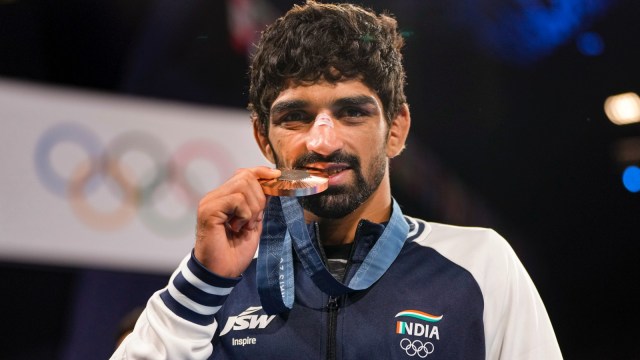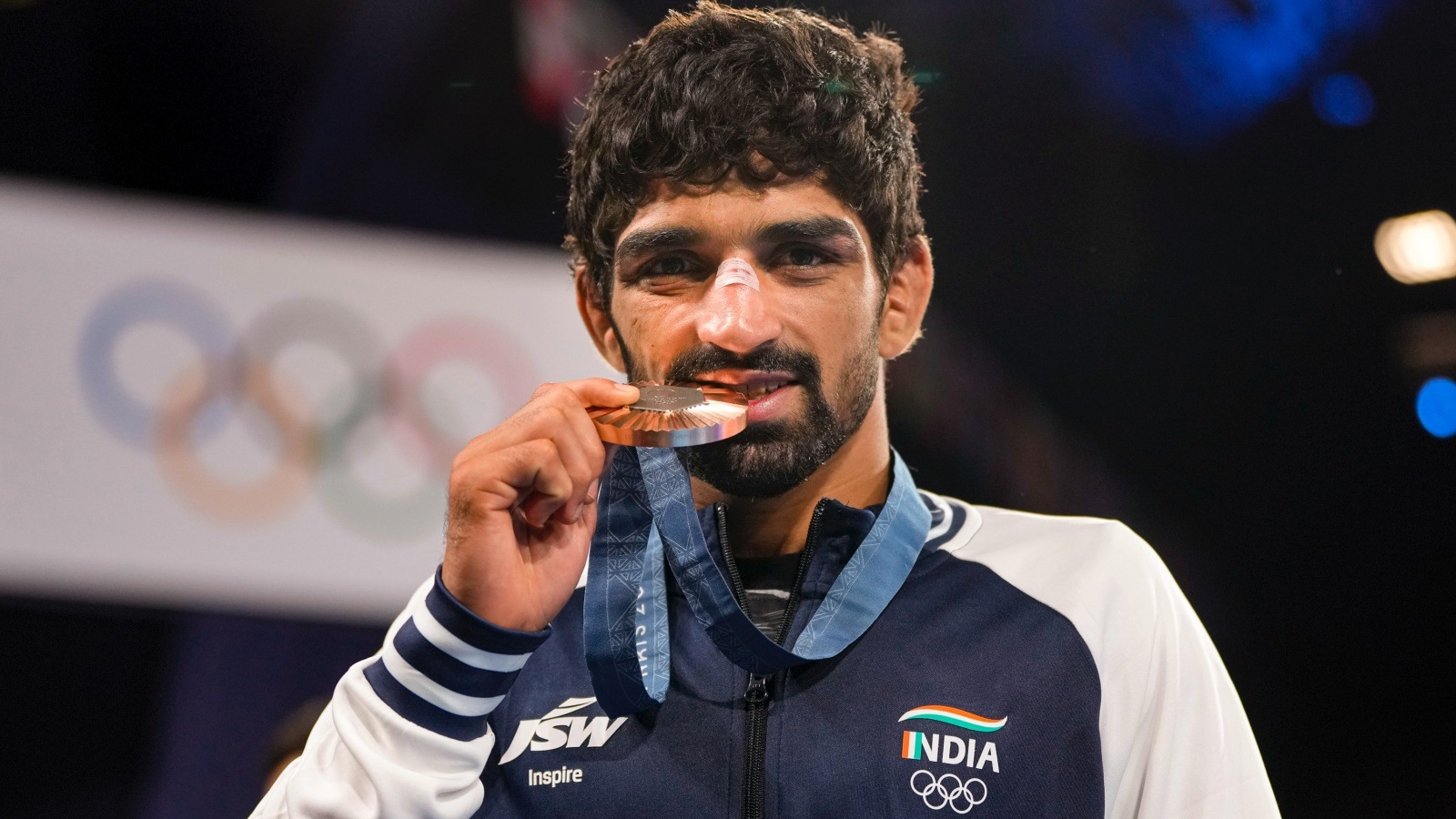
Apart from the unfortunate news surrounding Vinesh Phogat’s disqualification from her wrestling event at the Olympics, there has been another news item that did the rounds in several international newspapers. This concerned the Ambani family and their “quest” to improve India’s standing in elite sporting events such as the Olympics. Leaving aside the expected hype about the role of private wealth in securing sporting “glory”, it is worth considering the case for its involvement in elite sport. This, actually, goes to the heart of ideas of public welfare and the role of the state and its responsibility towards the most marginalised.
There is a difference between promoting physical activity among the general population and sponsoring elite sporting activity. The former improves public health, while the latter is mainly concerned with adding to private profits and feelings of (frequently middle-class) nationalism. How should we define the role of the state: Should its limited resources be devoted to increasing public welfare or enhancing private profit and the ephemeral buzz of nationalist feeling?
There does not appear to be any evidence that the state’s involvement in sponsoring Olympic participation has had any public welfare effects. First, it does not translate into any concrete benefits in terms of improved health because audiences for global sporting events are inspired to adopt better lifestyle activities. In a poor country, where livelihoods are precarious, this is a much more complicated affair and there can, in fact, be little connection between elite sport and the welfare of the majority of the population. Second, even if we were to grant that nationalism-fuelled exultation over medals adds to some form of emotional well-being, the fact that over the years, India has won under 45 medals altogether makes a weak case for publicly funding what is clearly very poor returns on investment.
There is, on the other hand, a clear relationship between national wealth and medals acquisition. At just over 3,000 medals, the US has the largest number, followed, as expected, by countries such as Germany and the UK. Long-distance runners from Africa fuel our views about the indomitability of the human spirit under adverse circumstances and sport as an equaliser between the well-off and the deprived. However, individual effort and personal willpower can never be a way of understanding how one builds systems that lead to better outcomes. And, to come to grips with this, we need to understand the nature of the state in our part of the world and why it should not fund preparations for participation in elite sports.
Historically, there has been a close relationship between parties in power and their patronage activities. There are at least two reasons for this: Patronage binds the party and its supporters and provides a source of support for the party. Unfortunately, the sporting arena in India has been a prime source of political patronage and since the key functionaries in sporting bodies tend to be political appointees, both their incompetence as well as deliberate misdeeds go unpunished. This directly relates to their nature as political appointees: Their primary significance and role is to further the aims of party politics rather than nurture sporting talent. Sport is politics and since the politics of sport reflects the nature of the state, sporting success cannot be an outcome of state sponsorship.
On the other hand, those who genuinely believe in both greater sporting success as well as improved public welfare might consider that greater private involvement might bring about both. First, private investment is subject to the most significant rule of business: Profits. These, in terms of investment in sport, will be the expectations of more medals which, in turn, enhance the company’s public image and better branding of its products. The state’s involvement, on the other hand, does not entail any “shareholder” scrutiny of this kind. Party politics and state functioning have different dynamics and, at least, in the Indian context, voters don’t necessarily punish parties on the basis of misuse of public funds. The appeal of religious, caste and ethnic loyalties has produced a particular kind of electoral democracy.
A genuine concern with public welfare requires a re-think regarding the nature of the state and the kinds of activities it should fund. Should the state fund activities that provide almost no public benefit, bolster party-political machinations and are the sources of occasional shouts of joy in the TV rooms of the relatively well-off? Or, should it focus attention on those parts of society that market forces will not consider profitable enough to invest in: Good quality education, health facilities and housing for the most deprived?
There is a romanticism to the manner in which we view the state as both an organ that must undertake all forms of public activity as well as that which, by definition, delivers public good. The former has usually meant an over-stretching of its capacities so that there is little it does well and the latter has never really been true. State forms are historical developments and the Indian one has its own peculiarity. Given this, we need to ask if state involvement in elite sports is the best way of using public money and who benefits from it. If elite sport is primarily about selling goods and commodities (no necessary evil in itself) and bolstering middle-class nationalism, should public funds be deployed for it? Can the private sector do it better – perhaps even create systems that are currently lacking – and should we aim at a society where public funds are expended in increasing the welfare of the majority?
The writer is British Academy Global Professor, Department of Anthropology and Sociology, SOAS University of London
© The Indian Express Pvt Ltd
First uploaded on: 11-08-2024 at 12:54 IST



